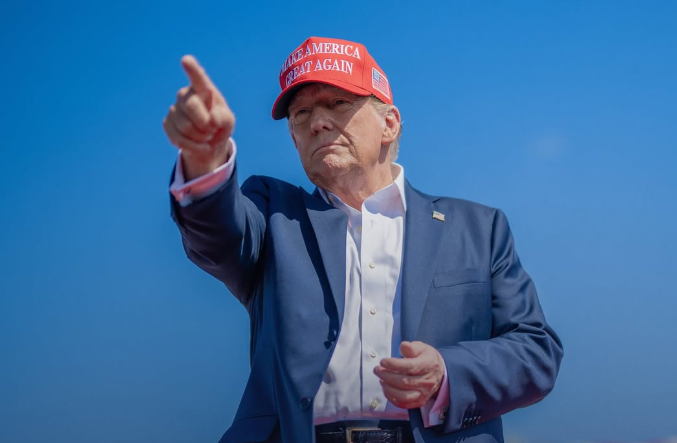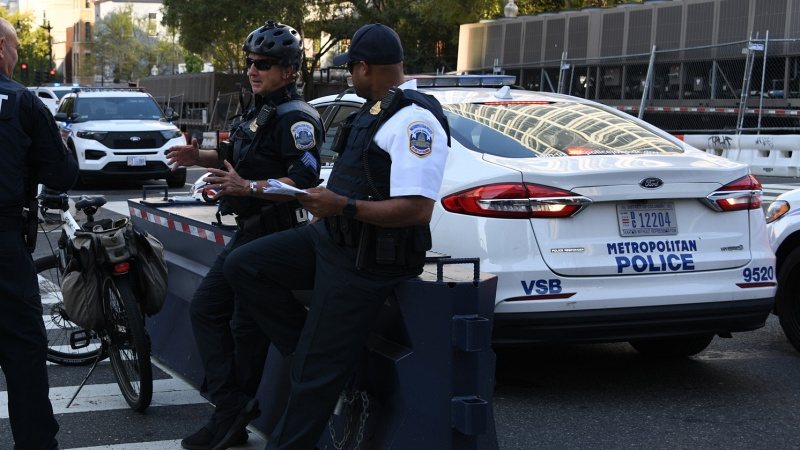Trump Announces Night Patrols in Washington, Shaking the Paradigm of U.S. Urban Governance
Input
Modified
‘Law-and-Order Performance’ Plan Sparks Confusion
Dispute Over Whether Crime Is Out of Control
Homeless Crackdown Framed as Urban Renewal

President Donald Trump has declared that he will personally join nighttime patrols in the nation’s capital, Washington, D.C. The announcement follows his earlier claim that the city’s public safety situation was “out of control.” By identifying homelessness and urban cleanliness as central to his law-and-order agenda, Trump is signaling that his approach to public safety hinges on removing encampments and restoring city aesthetics—a stance that observers say could spread to other major U.S. cities.
Eighty Percent of Residents Oppose Federal Control of Police
On the 21st (local time), Trump visited a U.S. Park Police facility in the Anacostia neighborhood of southeast Washington, where he met with about 300 agents from the Drug Enforcement Administration (DEA), the Bureau of Alcohol, Tobacco, Firearms and Explosives (ATF), the Federal Bureau of Investigation (FBI), and Homeland Security Investigations (HSI), as well as National Guard troops and city police officers. “Washington, D.C. used to be synonymous with terrible crime,” he said. “Thanks to you, it is now a place where everyone feels safe, and in just a few weeks it will be even better.”
In a radio interview the same day with conservative host Todd Starnes, Trump again spotlighted the city’s safety, saying, “Tonight I will patrol the streets with police officers and soldiers.” His comments came just ten days after he had announced that he would place the capital’s public safety under federal control. Following his remarks, law enforcement began cordoning off nearby roads in preparation for his patrol, causing traffic disruptions across the area.
On August 11, Trump had described the city’s crime conditions as “lawless and uncontrollable” and declared that the Metropolitan Police Department would be brought under federal oversight. He also ordered the deployment of the National Guard for law enforcement purposes. Many residents reacted negatively: according to a local poll, roughly 80 percent of Washingtonians oppose the federal government taking control of the police force. If Trump follows through with his patrols, confrontations with protesters appear possible.

Violent Crime Down for Second Straight Year
Trump’s aggressive intervention in the city’s crime debate has sparked questions at home and abroad about whether Washington’s situation truly warrants National Guard deployment. Statistics from the Metropolitan Police Department (MPDC) show that violent crime, which peaked in 2023, has been declining since, with last year marking the lowest level in three decades. The trend has continued this year. MPDC reported that violent crimes through early August were down 26 percent compared with the same period in 2024, with robberies down 28 percent.
Trump and the city’s police union, however, questioned the reliability of the MPDC’s figures, noting discrepancies with statistics from the FBI, another key source of U.S. crime data. MPDC data showed a 35 percent decline in violent crime for 2024, while the FBI recorded a 9 percent drop. Both sets of data indicate a decline, but the magnitude differs.
Experts say such discrepancies are not unusual. Adam Gelb, president of the Council on Criminal Justice (CCJ), a legal policy think tank, explained: “Crime numbers can vary depending on timeframes or how offenses are classified. But what is indisputable is that after homicides, gun assaults, robberies, and carjackings peaked in 2023, violent crime in Washington has fallen substantially.” Still, he added, “Washington’s violent crime rates remain higher than the average of 36 cities we track.”
Toward a Large-Scale ‘Clean-Up Operation’
Trump also made homelessness a centerpiece of his safety strategy. Using harsh language, he vowed to “clear out the human trash,” framing encampment removal not merely as an issue of public order but as a political message about freeing the city from crime and squalor. His approach prioritizes urban space management and visual restoration over housing solutions, aligning with his pledge to make Washington “the safest capital city in the world.”
Citing tent cities and encroachments on public parks, Trump argued that homeless encampments heighten public anxiety. “They are taking over the city,” he said, adding, “What has been done so far is not enough.” He placed homelessness on the same plane as crime reduction, outlining plans for a massive clean-up operation backed by National Guard deployments.
Analysts note growing expectations that Washington could become a template for other cities. With Chicago, Atlanta, Los Angeles, San Francisco, and other major metros having effectively “abandoned” areas of concentrated homelessness, many expect those cities to follow Washington’s lead. Trump’s characteristic bluntness and activist style, they argue, could disrupt long-standing paradigms of American urban management.





















